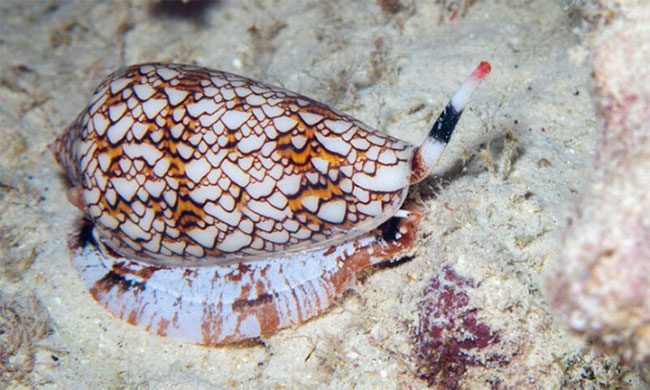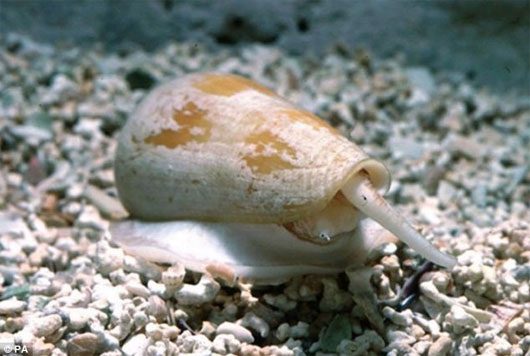The Deadly Venom of Cone Snails May Hold the Key to Developing New Drugs, Including More Effective Painkillers.
Cone snails, with their beautifully decorated shells, are among the most stunning yet dangerous creatures in the ocean.

Cone snails possess numerous intriguing properties for medical research.
Despite their potentially lethal sting, cone snails exhibit many appealing characteristics in medical research. In a recent report on March 30, chemists and biochemists at the University of Glasgow in Scotland indicated that a modified version of conotoxin, a highly potent neurotoxic peptide found in their venom, could be used to safely and effectively block pain receptors in humans.
To better understand how cone snail venom affects human muscles, the research team collaborated with machine learning and artificial intelligence experts at the University of Southampton in England, along with colleagues at the Defense Science and Technology Laboratory, to investigate the molecular structure of conotoxin peptides.
They will build upon this knowledge to synthesize new peptides that are promising for interacting with a type of receptor in the human nervous system known as nicotinic acetylcholine receptors (nAChRs), and then employ advanced computer modeling techniques to assess their effectiveness in binding to muscle receptors.
“The ability to interact with nicotinic acetylcholine receptors using modified peptides could be the key to developing new muscle relaxants for anesthesia or painkillers that are as effective as opioids but without the potential for addiction. This is an exciting project, and we are very eager to move forward,” emphasized Dr. Andrew Jamieson from the Department of Chemistry at the University of Glasgow, the lead author of the study.

Cone snails typically inhabit warm and tropical seas
Cone snails, which usually reside in humid and tropical marine environments, use their venom to paralyze their prey. Professor Craik noted that cone snail venom contains hundreds of proteins, including conotoxin, which has effective pain-relieving properties in humans.
Although rare, there have been recorded instances of fatal cone snail stings worldwide. Currently, there is no antivenom for conotoxin, meaning that severe cone snail stings cannot be effectively treated.
Jamieson also hopes that their project could lead to the development of the first treatment methods for conotoxin poisoning in the future.


















































